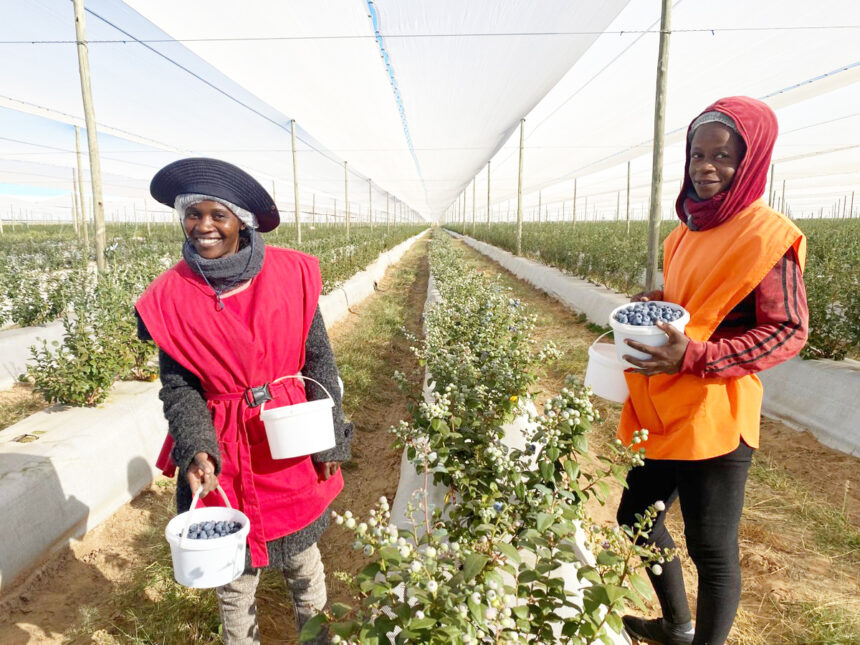The Mashare Blueberries Farm, which is now in its fifth year of production, is expecting another quality bumper harvest spanning over 60 hectares, with large quantities of Azrablue, Atlasblue, Biancablue berries and Sekoya Pop all anticipating to embellish this year’s yield.
The country’s first-ever commercial berry farm is situated 45km outside Rundu in the Kavango East, and currently employs 100 permanent people. It can employ 800 people seasonally during the harvesting period.
In peak seasons, the blueberry farm injects approximately N$1 million to N$1,5 million per month into the local economy in the region.
The project is financially backed by the Government Institutions Pension Fund (GIPF) through the enterprise Spitz Capital, and is managed by fund manager Königstein Capital.
During his recent visit to the farm, GIPF’s CEO Martin Inkumbi expressed great satisfaction with the good work done on the farm, and with how the farm continues to strive for quality and growth.
“I do believe this is a sector that has potential. They continue trying a variety of blueberries. They have approximately six different varieties, with a scope for expanding. This has a positive impact on the livelihood of the employees, their family members and the region at large. I’m satisfied with how the institutional savings, namely those of the GIPF, have positively impacted the Namibian economy by earning a return, and benefitting the GIPF members in the long term,” he
said.
Despite the Azrablue, Atlasblue, Biancablue berries and Sekoya Pop, the Mashare Blueberries Farm is also testing two more variants of berries with the hope of expanding their operations and variety of berries on the market.
The farm currently exports its berries to, amongst others, Europe and the Middle East.
The demand for Namibian berries worldwide is also growing.
Initially, the farm was developed by the government as an estate to produce maize, wheat and other crops.
In mid-2018, it was resolved that the operations should be expanded into other export-oriented, job-creating permanent crops. After lots of research, it was clear that with the right management and genetics basis, blueberries could thrive in the Kavango’s more acidic soil, and use less water sourced from the abundant Kavango River.
As it stands, expansion plans to grow production to 200 hectares have been developed, and promise to create more employment opportunities for the locals.
This is further proof that Namibia can be a key player in high-value crop production in the international arena.
Globally, demand for the product remains high, mainly because of the healthy properties attributed to the fruit.
Consequently, the price of blueberries is high, which is why many countries see a potential market for the product.
The blueberry market is estimated to
grow by US$2.46 billion between 2023-2027.
-ohembapu@nepc.com.na



